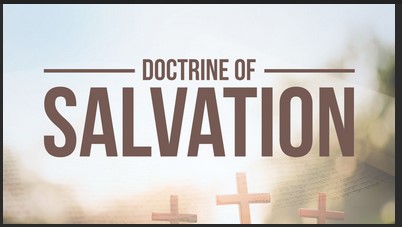SOTERIOLOGY(The Doctrine of Salvation)
Course Outline (Units/Modules) Unit 1: Introduction to Soteriology Definition and scope of Soteriology Relationship of Soteriology to other doctrines (Christology, Pneumatology, Ecclesiology, Eschatology) Biblical overview of salvation history (Creation, Fall, Redemption, Consummation) Unit 2: The Human Condition and the Need for Salvation Doctrine of sin (Hamartiology) – origin, nature, and consequences The fall of humanity and total depravity The justice and holiness of God Th
- Lesson: 2
- Last Updated 11/08/2025
What will i learn??
- Course Objectives By the end of the course, students should be able to: 1. Define and explain the key doctrines related to salvation. 2. Analyze the biblical foundations of salvation in both Old and New Testaments. 3. Evaluate different theological perspectives on salvation throughout church history. 4. Apply the doctrine of salvation to personal faith, preaching, and Christian ministry. 5. Critically engage with contemporary debates surrounding soteriology.
Curriculum for this course Lesson: 2
Section 1: INTRODUCTION TO SALVATION Lesson
- Lesson 1: INTRODUCTION
- Assignment 1: SOTERIOLOGY (THE STUDY OF SALVATION ASSIGNMENT)
Section 2: SOTERIOLOGY (STUDY OF SALVATION) EXAM Lesson
- Lesson 2: SOTERIOLOGY (STUDY OF SALVATION) EXAM
Description
Course Outline (Units/Modules) Unit 1: Introduction to Soteriology Definition and scope of Soteriology Relationship of Soteriology to other doctrines (Christology, Pneumatology, Ecclesiology, Eschatology) Biblical overview of salvation history (Creation, Fall, Redemption, Consummation) Unit 2: The Human Condition and the Need for Salvation Doctrine of sin (Hamartiology) – origin, nature, and consequences The fall of humanity and total depravity The justice and holiness of God The wrath of God and divine judgment Unit 3: The Divine Initiative in Salvation The grace of God: common grace vs. special grace Election and predestination (Calvinist, Arminian, and other perspectives) The role of the Trinity in salvation: Father, Son, and Holy Spirit The covenant of redemption Unit 4: The Person and Work of Christ (Christocentric Soteriology) Incarnation and its significance for salvation Substitutionary atonement: theories of atonement (Ransom, Satisfaction, Penal Substitution, Moral Influence, Christus Victor) Resurrection, ascension, and intercession of Christ Unit 5: The Application of Salvation (Ordo Salutis – Order of Salvation) Calling (general and effectual) Regeneration (new birth) Conversion (faith and repentance) Justification (by faith, grace, and works debates) Adoption into God’s family Sanctification (progressive and positional) Perseverance of the saints and assurance of salvation Glorification Unit 6: The Role of the Holy Spirit in Salvation Conviction of sin Regeneration and renewal Sealing of the Spirit Empowerment for holy living Unit 7: Salvation in the Old Testament and New Testament OT shadows and types of salvation (sacrifices, covenant, exodus) Salvation in the prophets and wisdom literature Jesus’ teachings on salvation Pauline theology of salvation Johannine perspective on eternal life Unit 8: Historical Perspectives on Salvation Early Church Fathers on salvation (Athanasius, Augustine, Pelagius) Medieval perspectives (Aquinas, Anselm) Reformation views (Luther, Calvin, Arminius, Council of Trent) Modern theological developments (Barth, Wesleyan, Liberation theology, Pentecostal perspectives) Unit 9: Contemporary Issues in Soteriology Universalism vs. exclusivism vs. inclusivism Salvation and other religions The relationship between faith and works Assurance of salvation in pastoral ministry Salvation and social justice (liberation theology, holistic mission) Unit 10: Practical Implications of Salvation Personal transformation and discipleship Evangelism and mission Salvation and ethics (living out a redeemed life) Hope of eternal life and eschatological fulfillment Teaching Methods Lectures and discussions Scriptural exegesis Case studies and theological debates Research papers and presentations Practical ministry application Assessment Methods Class participation and discussions (10%) Assignment (20%) Final exam/project (70%).
Other related courses
ENTERPRENUERSHIP FOR MINISTRY LEADERS
Course Outline & Units Unit 1: Introduction to Entrepreneurship and Ministry • Definition of entrepreneurship and its relevance to the ministry. • Biblical foundations: stewardship, talent multiplication (Matthew 25:14–30). • Differences and similarities between business entrepreneurship and ministry entrepreneurship. Unit 2: The Entrepreneurial Mindset for Ministry Leaders • Creativity, innovation, and vision casting. • Identifying personal gifts and opportunities. • O
Last Updated 11/08/2025
2 Lessons
The Role of the Church in National Development
Course Outline & Units
Unit 1: Introduction to Church and National Development
Meaning of development: economic, social, moral, and spiritual dimensions.
Theological foundation of the Church’s mission in society.
The Church as salt and light (Matthew 5:13-16).
Unit 2: Historical Role of the Church in Nation-Building
Early church contributions to education and healthcare.
Missionary impact on literacy, agriculture, and civilization.
The Church’s role in Afric
Last Updated 11/08/2025
3 Lessons
THE ROLE OF THE CHURCH FOR NATIONAL DEVELOPMENT
Course Outline & Units
Unit 1: Introduction to Church and National Development
Meaning of development: economic, social, moral, and spiritual dimensions.
Theological foundation of the Church’s mission in society.
The Church as salt and light (Matthew 5:13-16).
Unit 2: Historical Role of the Church in Nation-Building
Early church contributions to education and healthcare.
Missionary impact on literacy, agriculture, and civilization.
The Church’s role in
Last Updated 11/08/2025
3 Lessons
Student Feedback
Average Rating



